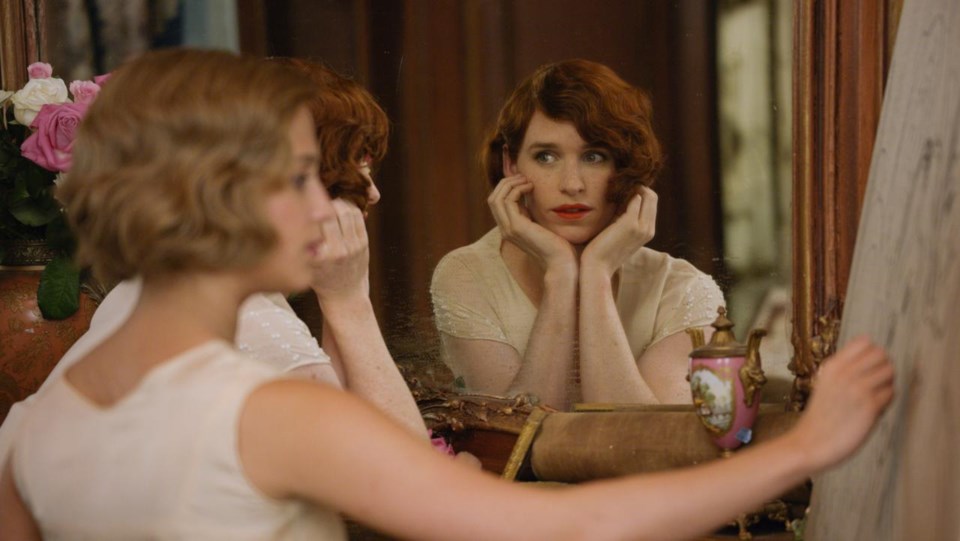Viewers see a whole lot of Eddie Redmayne in his latest role, but it’s Alicia Vikander who is most exposed — at least, emotionally — in Tom Hooper’s new film The Danish Girl.
The story is in fact as much Gerda Wegener’s as it is that of her husband, successful Danish painter Einar Wegener, who was one of the first people to undergo gender reassignment surgery.
In the bucolic filtered light and bright row houses of Copenhagen, 1926, Gerda (Vikander) finds herself perpetually in the shadow of her artist husband: her portraits don’t elicit the same rave reviews as do Einar’s (Redmayne) paintings of the lush rural landscapes of his childhood.
Mutual bohemian friend Ulla (Amber Heard) is amazed by how two monogamous people could be so devoted to one another. Gerda tells the story of their romance, how she was the one who pursued Einar — “he was so shy” — and how “when I kissed him, it was like kissing myself.”
But any confidence accompanying Einar’s fame belies trouble beneath the surface. Einar obligingly dons stockings and fancy shoes to help Gerda put the finishing touches on a painting. Then, as a lark, he attends an artists’ ball disguised as a fictional cousin, Lili.
“You’re different from most girls,” observes an admirer at the ball (Ben Whishaw).
What starts as good fun becomes something much more. Einar frequents the ballet’s costume department and studies peep-show girls in order to learn how to move like a woman. Lili appears more frequently, and Einar less often. Gerda, seeing that she is losing her husband, accompanies him as he seeks treatment, including suspect radiation therapy and diagnoses of chemical imbalance and schizophrenia.
Einar stops painting. He has blinding headaches. Things come to a head after Lili seeks out Einar’s childhood friend, Paris art dealer Hans (Matthias Schoenaerts, Far From the Madding Crowd).
Eventually a more enlightened doctor is found (Sebastien Koch) who suggests a risky, never-performed sex-reassignment operation. Einar/Lili explains it simply: “God made me a woman… a doctor is curing me of the sickness that is my disguise.”
Lili Elbe is who Einar Wegener was meant to be, and her journals of self-discovery and transitioning became essential reading for members of the trans movement. (The story is based on David Ebershoff’s novel of the same name.)
In terms of performance, Vikander wins the day. Between this performance and his Oscar-winning transformation last year as Stephen Hawking, Redmayne proves himself to be a master chameleon, but his transformation here is too much studied posturing. The stakes are high, but we are never granted access to Lili’s true state of mind. Vikander, in contrast, is an open portrait of grief, loss and unconditional love.
Any other year Redmayne would be lead horse in the Best Actor race, but academy voters — perhaps squeamish about the subject matter, and having already voted for his performance last year — aren’t likely to honour him two years running.Â
The Danish Girl opens Friday at Fifth Avenue.



